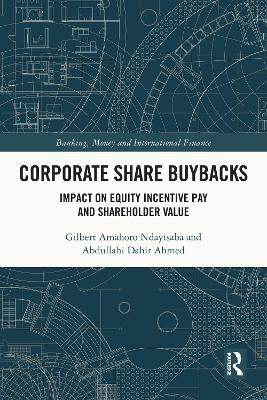This book integrates elements from agency theory and signalling theory and draws upon recent changes in the Australian payout policy and incentives pay for risk-averse employees to provide theoretical and empirical analyses that explain the paradox of the popularity of on-market stock buyback activities in a market environment characterised by reasonably high share prices.
The authors utilise a dynamic model that rationalises this paradox, which is divided into three components. The first component predicts that executives may be conducting on-market stock buyback programmes (SBPs) to adjust equity-based remuneration for risk-averse employees, thereby motivating their performance without granting them additional costly equity incentive plans (EIPs); the second component predicts that companies are likely to invest in SBPs to increase the ownership stakes of employees in the firm, thereby inducing risk-averse employees to increase their productivity which increases firm value; while the third component predicts that shareholders would benefit from incentives-induced buybacks if a firm’s opportunity cost of funds spent on buybacks is less than its inverse price-to-earnings ratio.
The authors’ findings highlight differences in the market responses towards announced repurchase motives, implying that not all incentives-induced buybacks are value-destructive buybacks. Specifically, the widespread assumption that SBPs stifle investments in human and capital stock may be subjective as the findings show that incentives-induced buybacks may be value-creative or value-destructive depending on share repurchase motives of SBPs.
This book will be a useful guide for scholars and researchers of finance, corporate finance, financial economics and financial accounting.
- ISBN13 9781003815457
- Publish Date 5 December 2023
- Publish Status Active
- Publish Country GB
- Imprint Taylor & Francis Ltd
- Format eBook
- Pages 228
- Language English
